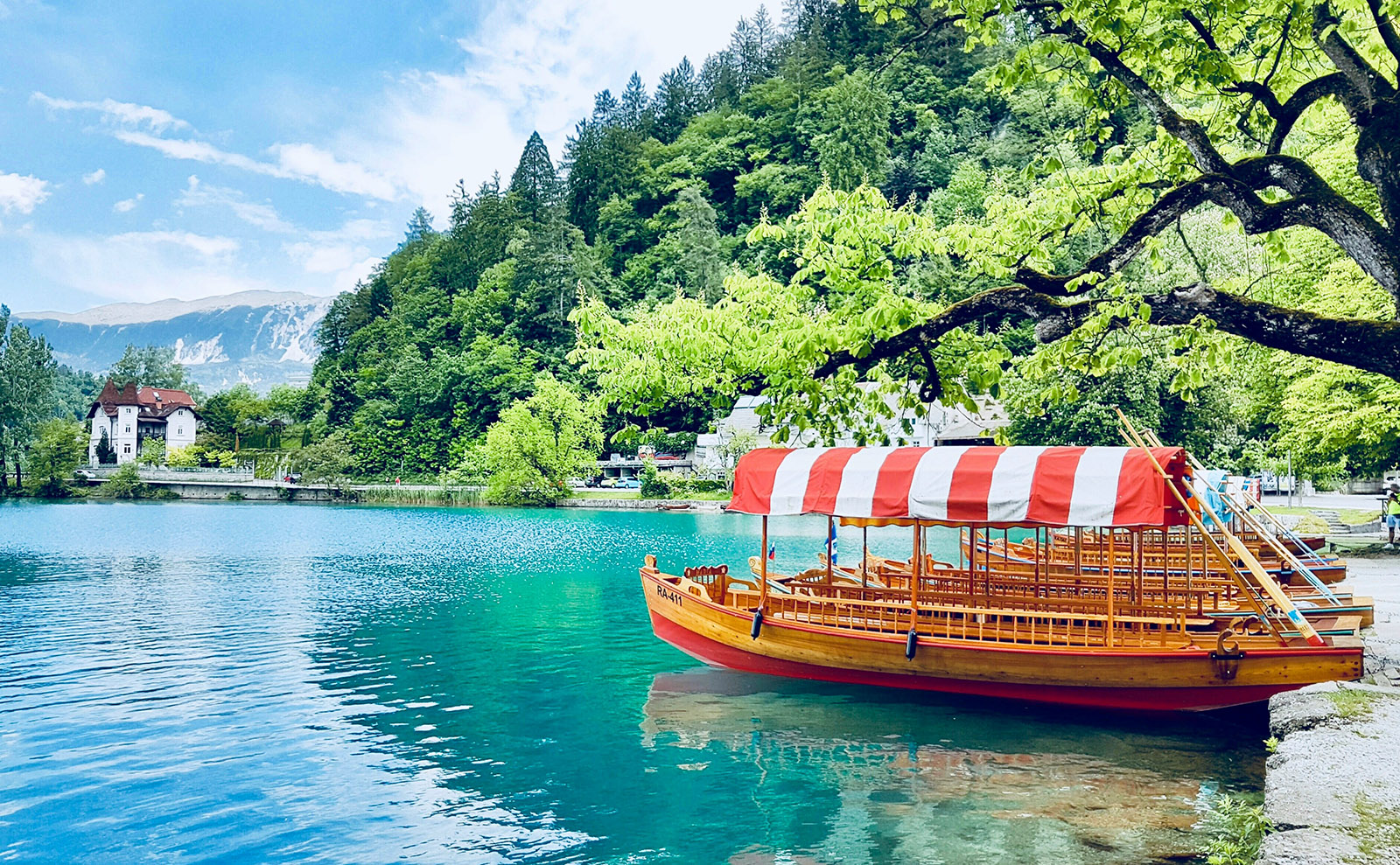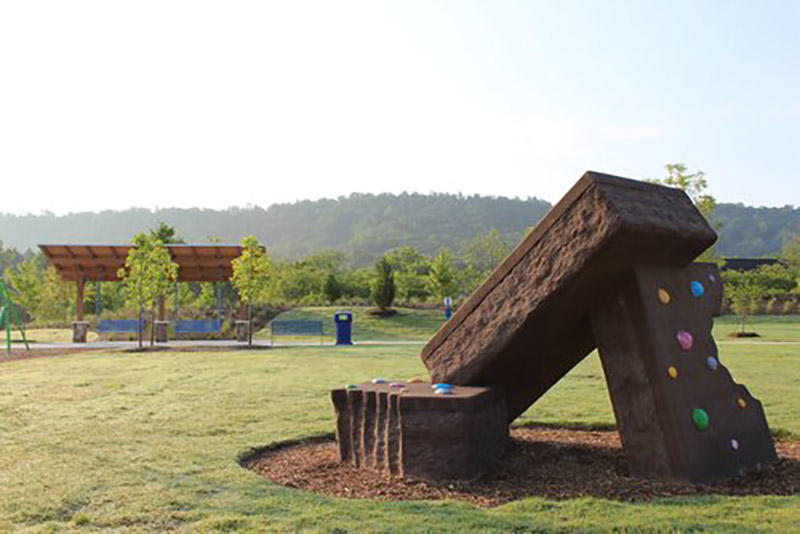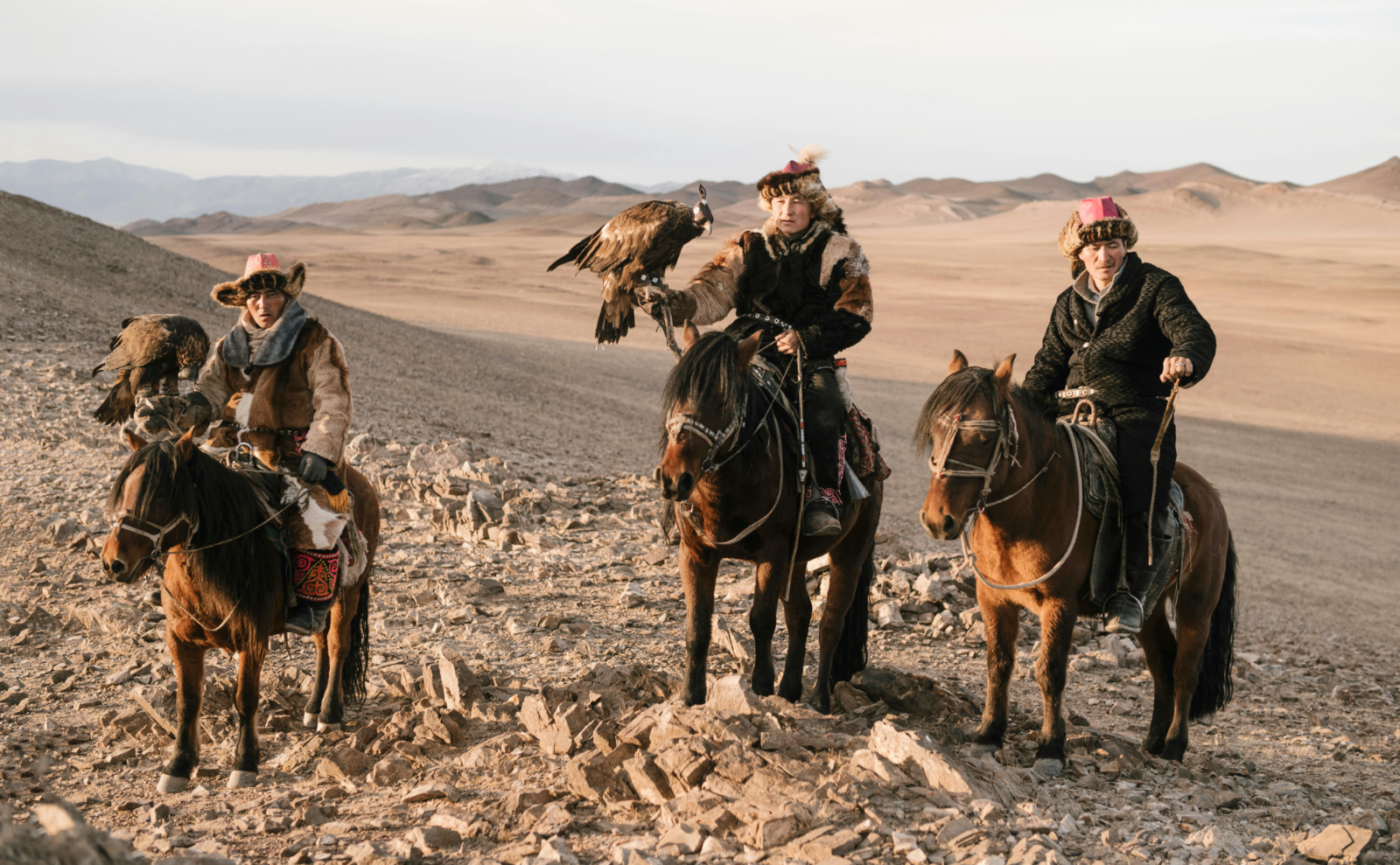
Armchair travel around the world!
Start your reading adventures with our FREE Reading Atlas.

- Around the World in 14 Books
- 7 Thrilling Book Series
- 6 Audiobooks That Are Like Theater For Your Ears



Every Friday, we celebrate the weekend — and all the reading and relaxing and daydreaming time ahead — with Melissa's favorite book- and travel-related links of the week. Why work when you can read fun stuff?!
This post is part of our Endnotes series.

That inviting boat above is floating on Lake Bled, a perfectly charming lake in the Julian Alps of Slovenia. The wooden boat called a pletna is flat-bottomed and has been used as transport to Bled Island since 1590 (or as early as 1150, depending on who’s telling the story). The pletna are based on Italian gongolas and seat about 18 people. The boats are still made by hand and are propelled by two oars wielded by the boatman, a.k.a., the pletnar. There are only 23 pletna boats on Lake Bled, operated by the descendants of the original 22 pletnar families. This video makes the whole enterprise feel very majestic — and here’s a fun video about how to spend a great 48 hours in Lake Bled. Bonus points if you also visit the nearby Slovenian capital of Ljubljana and eat Bled cream cake (Blejska kremšnita).
This whodunnit choose-your-own-adventure game from LitHub is super fun. It’s the perfect level of engagement for happy hour or during a train ride.
Did you read the fantastic book Interior Chinatown by Charles Yu; it was the 2020 National Book Award winner. Here’s a sneak peek at the upcoming movie adaption.
Must-click headline: How to Pick the Perfect Book to Read on a Plane.
Is this Little Debbie Park in Chattanooga, Tennessee, the sweetest park in the state? (Lots of photos here.)

This essay about reading Tolkien’s The Hobbit out loud is a sweet story and a neat etymology lesson. ‘Many fairy tales are written in a prose meter that is specific to the genre, often quite lilting (‘Once up__on__ a time…’). It’s akin to writing in hymn meter, for example. Such stories are full of iambs and anapests, so that the sentences often start running in lulling rhythms, with occasional choriambs. Beatrix Potter is especially good at this, in The Tailor of Gloucester and The Tale of Mr. Jeremy Fisher… Tolkien has a great ability to write this fairy-tale prose. When you read the book out loud this lilting style becomes much more obvious and engrossing.’
These photos of Olympic athletes doing their thing in Paris landmarks are just beautiful — and this piece on how athletes get their cumbersome equipment to the Games is fascinating. ‘While swimmers can shove a Speedo in a back pocket and runners can stash a pair of track spikes in a backpack, other Paris-bound athletes face an Olympian challenge in getting their equipment — from boats to guns to horses — to these Summer Games.’ (WaPo gift link)
Quiz: Can you identify these world capitals? I got 9/12.
OK! Who wants to go in on this medieval monastery with us? It’s just 30 minutes from London, it’s surely not haunted (!), and the library looks like this:

There are a lot of theories about how ‘OK’ became the universal way to communicate that all is well. Here’s the okey-dokey story of how one man discovered its origins.


If we say ‘Mongolia,’ and you imagine an eagle hunter on horseback, silhouetted against an endless blue sky and vast open plains, you are not wrong. Ditto for thinking of Chingiss Khan, frigid winters, and resilient nomads in gers (yurts).
While those perceptions are valid, Mongolia may have some surprises for you. The sun shines 250 days each year, and summer days are luxuriously long and warm. Yes, Khan is a national hero (see: the 3-story glimmering steel statue of Genghis Khan on horseback), but Mongolians are most welcoming. The flap door of a ger is open to all, friends and strangers alike — and a hot bowl of milk tea will appear as soon as you cross the threshold.
In the capital city of Ulaanbaatar, you can eat in restaurants, visit a temple, and wander through museums. When you’ve had enough of the bustle, ride into the steppes — on a horse, a camel, or an all-terrain jeep — and back in time. Under the big sky, you can head north to spruce forests that stretch toward Russia, or west to the jaggy Altai mountains, or south to the wind-swept dunes of the Gobi Deserts (and, eventually, China).
In this episode, we meet a formidable Mongolian warrior princess, listen to the otherworldly sound of Tuvan throat singing, and travel back in Mongol history with the annual Naadam Festival (a.k.a. the Mongolian Olympics).
Then we recommend five great books that took us to Mongolia on the page, including the story of an ancient warrior woman, a nonfiction account of the world’s toughest horse race, a YA novel about a female eagle hunter, an illustrated travelogue of riding the Trans-Siberian Railroad, and the tale of a road trip across Mongolia with twin-brother monks. [transcript]
Visit our show notes for photos, links to fascinating stuff, videos, author info, and more.
Top image courtesy of Jason Thomas/Unsplash.
Want to keep up with our book-related adventures? Sign up for our newsletter!
Can you help us? If you like this article, share it your friends!
Strong Sense of Place is a website and podcast dedicated to literary travel and books we love. Reading good books increases empathy. Empathy is good for all of us and the amazing world we inhabit.
Strong Sense of Place is a listener-supported podcast. If you like the work we do, you can help make it happen by joining our Patreon! That'll unlock bonus content for you, too — including Mel's secret book reviews and Dave's behind-the-scenes notes for the latest Two Truths and a Lie.
Join our Substack to get our FREE newsletter with podcast updates and behind-the-scenes info — and join in fun chats about books and travel with other lovely readers.

We'll share enough detail to help you decide if a book is for you, but we'll never ruin plot twists or give away the ending.
Content on this site is ©2026 by Smudge Publishing, unless otherwise noted. Peace be with you, person who reads the small type.